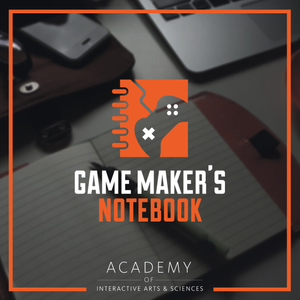![DEF CON 23 [Audio] Speeches from the Hacker Convention - Brian Gorenc, Abdul-Aziz Hariri, Jasiel Spelman - Abusing Adobe Reader’s JavaScript APIs](https://www.defcon.org/images/defcon-23/dc-23-itunes-logo-Audio.avif)
Brian Gorenc, Abdul-Aziz Hariri, Jasiel Spelman - Abusing Adobe Reader’s JavaScript APIs
10/16/15 • -1 min
Materials Available here: https://media.defcon.org/DEF%20CON%2023/DEF%20CON%2023%20presentations/DEFCON-23-Hariri-Spelman-Gorenc-Abusing-Adobe-Readers-JavaScript-APIs.pdf
Abusing Adobe Reader’s JavaScript APIs
Brian Gorenc Manager, HP’s Zero Day Initiative
Abdul-Aziz Hariri Security Researcher, HP’s Zero Day Initiative
Jasiel Spelman Security Researcher, HP’s Zero Day Initiative
Adobe Reader’s JavaScript APIs offer a rich set of functionality for document authors. These APIs allow for processing forms, controlling multimedia events, and communicating with databases, all of which provide end-users the ability to create complex documents. This complexity provides a perfect avenue for attackers to take advantage of weaknesses that exist in Reader’s JavaScript APIs.
In this talk, we will provide insight into both the documented and undocumented APIs available in Adobe Reader. Several code auditing techniques will be shared to aid in vulnerability discovery, along with numerous proofs-of-concept which highlight real-world examples. We’ll detail out how to chain several unique issues to obtain execution in a privileged context. Finally, we’ll describe how to construct an exploit that achieves remote code execution without the need for memory corruption.
Brian Gorenc is the manager of Vulnerability Research with Hewlett-Packard Security Research (HPSR). In this role, Gorenc leads the Zero Day Initiative (ZDI) program, which is the world’s largest vendor-agnostic bug bounty program. His focus includes analyzing and performing root-cause analysis on hundreds of zero-day vulnerabilities submitted by ZDI researchers from around the world. The ZDI works to expose and remediate weaknesses in the world’s most popular software. Brian is also responsible for organizing the ever-popular Pwn2Own hacking competitions.
Prior to joining HP, Gorenc worked for Lockheed Martin on the F-35 Joint Strike Fighter (JSF) program. In this role, he led the development effort on the Information Assurance (IA) products in the JSF’s mission planning environment.
Twitter: @maliciousinput
Abdul-Aziz Hariri is a security researcher with Hewlett-Packard Security Research (HPSR). In this role, Hariri analyzes and performs root-cause analysis on hundreds of vulnerabilities submitted to the Zero Day Initiative (ZDI) program, which is the world's largest vendor-agnostic bug bounty program. His focus includes performing root-cause analysis, fuzzing and exploit development.
Prior to joining HP, Hariri worked as an independent security researcher and threat analyst for Morgan Stanley emergency response team. During his time as an independent researcher, he was profiled by Wired magazine in their 2012 article, “Portrait of a Full-Time Bug Hunter”.
Twitter: @abdhariri
Jasiel Spelman is a vulnerability analyst and exploit developer for the Zero Day Initiative (ZDI) program. His primary role involves performing root cause analysis on ZDI submissions to determine exploitability, followed by developing exploits for accepted cases. Prior to being part of ZDI, Jasiel was a member of the Digital Vaccine team where he wrote exploits for ZDI submissions, and helped develop the ReputationDV service from TippingPoint. Jasiel's focus started off in the networking world but then shifted to development until transitioning to security. He has a BA in Computer Science from the University of Texas at Austin.
Twitter: @wanderingglitch
HP’s Zero Day Initiative, Twitter: @thezdi
Materials Available here: https://media.defcon.org/DEF%20CON%2023/DEF%20CON%2023%20presentations/DEFCON-23-Hariri-Spelman-Gorenc-Abusing-Adobe-Readers-JavaScript-APIs.pdf
Abusing Adobe Reader’s JavaScript APIs
Brian Gorenc Manager, HP’s Zero Day Initiative
Abdul-Aziz Hariri Security Researcher, HP’s Zero Day Initiative
Jasiel Spelman Security Researcher, HP’s Zero Day Initiative
Adobe Reader’s JavaScript APIs offer a rich set of functionality for document authors. These APIs allow for processing forms, controlling multimedia events, and communicating with databases, all of which provide end-users the ability to create complex documents. This complexity provides a perfect avenue for attackers to take advantage of weaknesses that exist in Reader’s JavaScript APIs.
In this talk, we will provide insight into both the documented and undocumented APIs available in Adobe Reader. Several code auditing techniques will be shared to aid in vulnerability discovery, along with numerous proofs-of-concept which highlight real-world examples. We’ll detail out how to chain several unique issues to obtain execution in a privileged context. Finally, we’ll describe how to construct an exploit that achieves remote code execution without the need for memory corruption.
Brian Gorenc is the manager of Vulnerability Research with Hewlett-Packard Security Research (HPSR). In this role, Gorenc leads the Zero Day Initiative (ZDI) program, which is the world’s largest vendor-agnostic bug bounty program. His focus includes analyzing and performing root-cause analysis on hundreds of zero-day vulnerabilities submitted by ZDI researchers from around the world. The ZDI works to expose and remediate weaknesses in the world’s most popular software. Brian is also responsible for organizing the ever-popular Pwn2Own hacking competitions.
Prior to joining HP, Gorenc worked for Lockheed Martin on the F-35 Joint Strike Fighter (JSF) program. In this role, he led the development effort on the Information Assurance (IA) products in the JSF’s mission planning environment.
Twitter: @maliciousinput
Abdul-Aziz Hariri is a security researcher with Hewlett-Packard Security Research (HPSR). In this role, Hariri analyzes and performs root-cause analysis on hundreds of vulnerabilities submitted to the Zero Day Initiative (ZDI) program, which is the world's largest vendor-agnostic bug bounty program. His focus includes performing root-cause analysis, fuzzing and exploit development.
Prior to joining HP, Hariri worked as an independent security researcher and threat analyst for Morgan Stanley emergency response team. During his time as an independent researcher, he was profiled by Wired magazine in their 2012 article, “Portrait of a Full-Time Bug Hunter”.
Twitter: @abdhariri
Jasiel Spelman is a vulnerability analyst and exploit developer for the Zero Day Initiative (ZDI) program. His primary role involves performing root cause analysis on ZDI submissions to determine exploitability, followed by developing exploits for accepted cases. Prior to being part of ZDI, Jasiel was a member of the Digital Vaccine team where he wrote exploits for ZDI submissions, and helped develop the ReputationDV service from TippingPoint. Jasiel's focus started off in the networking world but then shifted to development until transitioning to security. He has a BA in Computer Science from the University of Texas at Austin.
Twitter: @wanderingglitch
HP’s Zero Day Initiative, Twitter: @thezdi
Previous Episode

Gregory Picket - Staying Persistent in Software Defined Networks
Materials Available here: https://media.defcon.org/DEF%20CON%2023/DEF%20CON%2023%20presentations/DEFCON-23-Gregory-Pickett-Staying-Persistant-in-Software-Defined-Networks.pdf
Extras Here: https://media.defcon.org/DEF%20CON%2023/DEF%20CON%2023%20presentations/DEFCON-23-Gregory-Pickett-Extras.rar
Staying Persistent in Software Defined Networks
Gregory Pickett Cybersecurity Operations, Hellfire Security
The Open Network Install Environment, or ONIE, makes commodity or WhiteBox Ethernet possible. By placing a common, Linux-based, install environment onto the firmware of the switch, customers can deploy the Network Operating Systems of their choice onto the switch and do so whenever they like without replacing the hardware. The problem is, if this gets compromised, it also makes it possible for hackers to install malware onto the switch. Malware that can manipulate it and your network, and keep doing it long after a Network Operating System reinstall.
With no secure boot, no encryption, no authentication, predictable HTTP/TFTP waterfalls, and exposed post-installation partition, ONIE is very susceptible to compromise. And with Network Operating Systems such as Switch Light, Cumulus Linux, and Mellanox-OS via their agents Indigo and eSwitchd not exactly putting up a fight with problems like no authentication, no encryption, poor encryption, and insufficient isolation, this is a real possibility.
In this session, we'll cover the weaknesses in ONIE, ways to reach the platform through these Network Operating Systems, and what can happen if we don't properly protect the Control Plane these switches run on. I'll even demonstrate with a drive-by web-attack that is able to pivot through a Windows management station to reach the isolated control plane network, and infect one of these ONIE-based switches with malware, malware that's there even after a refresh. You'll even get the source code to take home with you to see how easily it's done. Finally, we'll talk about how to compensate for these issues so that your network doesn't become infected with and manipulated by this sort of persistent firmware-level malware.
Gregory Pickett CISSP, GCIA, GPEN has a background in intrusion analysis for Fortune 100 companies but now heads up Hellfire Security’s Managed Security Services efforts and participates in their assessment practice as a network security subject matter expert. As a security professional, his primary area of focus and occasional research is networks with an interest in using network traffic to better understand, to better defend, and sometimes to better exploit the hosts that live on them. He holds a B.S. in Psychology which is completely unrelated but interesting to know. While it does nothing to contribute to how he makes a living, it does demonstrate how screwed up he actually is.
Twitter: @Shogun7273
Next Episode

Michael Robinson & Alan Mitchell - Knocking my neighbor’s kid’s cruddy drone offline
Materials Available here:https://media.defcon.org/DEF%20CON%2023/DEF%20CON%2023%20presentations/DEFCON-23-Michael-Robinson-Knocking-My-Neighbors-Kids-Drone-Offline-UPDATED.pdf
Knocking my neighbor’s kid’s cruddy drone offline
Michael Robinson Professor, Stevenson University
My neighbor’s kid is constantly flying his quad copter outside my windows. I see the copter has a camera and I know the little sexed crazed monster has been snooping around the neighborhood. With all of the hype around geo-fencing and drones, this got me to wondering: Would it be possible to force a commercial quad copter to land by sending a low-level pulse directly to it along the frequencies used by GPS? Of course, radio signal jamming is illegal in the U.S and, frankly, it would disrupt my electronics, too. In this presentation, we’ll look at some of the research and issues we encountered, when we attempted to force land two commercial drones (the new DJI Phantom 3 and the Parrot Bepop Drone) by sending GPS signals directly at the drones (while staying under the threshold for jamming and not disrupting anyone else).
Michael Robinson has over 15 years of computer security experience and is currently a computer and mobile device forensic examiner in the Washington, DC area, where he deals with intrusion analysis, incident response, and criminal cases. For over four years he ran IT and IA operations for a Department of Defense agency. He has conducted research on security of mobile devices and is starting to play around in the drone space. He teaches computer forensics at the graduate level at Stevenson University in Maryland.
If you like this episode you’ll love
Episode Comments
Generate a badge
Get a badge for your website that links back to this episode
<a href="https://goodpods.com/podcasts/def-con-23-audio-speeches-from-the-hacker-convention-58118/brian-gorenc-abdul-aziz-hariri-jasiel-spelman-abusing-adobe-readers-ja-3015846"> <img src="https://storage.googleapis.com/goodpods-images-bucket/badges/generic-badge-1.svg" alt="listen to brian gorenc, abdul-aziz hariri, jasiel spelman - abusing adobe reader’s javascript apis on goodpods" style="width: 225px" /> </a>
Copy




